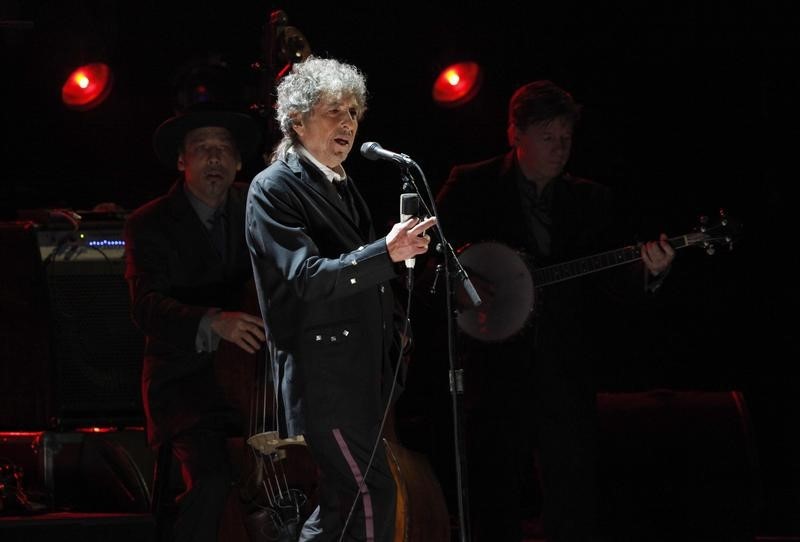
Musician Bob Dylan who won the Nobel Prize in Literature on Thursday (Oct. 13) has come a long way from the quaint small towns of Duluth and Hibbing, Minnesota where he was born and spent his childhood.
Dylan, a powerful voice of social turmoil in the United States from the 1960s onward, was awarded the Nobel Prize for Literature in a surprise decision that made him the first singer-songwriter to win the honor.
The 75-year-old Dylan, who won the prize for “having created new poetic expressions within the great American song tradition,” joins a long line of novelists, poets and playwrights including Octavio Paz, Albert Camus and Ernest Hemingway.
Residents of his childhood communities in Minnesota have long celebrated Dylan. The town of Duluth named a street after the musician — Bob Dylan Way — and commissioned manhole covers along the sidewalk that included Dylan’s name and image.
Dylan has museums in both towns, where fans from all over the world still visit.
Awarding the 8 million Swedish crown ($928,000) prize, the Swedish Academy said: “Dylan has the status of an icon. His influence on contemporary music is profound.”
Dylan’s songs, such as “Blowin’ in the Wind”, “The Times They Are A-Changin'”, “Subterranean Homesick Blues” and “Like a Rolling Stone” captured the spirit of a generation’s rebellion, dissent and independence.
The prize is the latest of many accolades for the native of Duluth, Minnesota, who first rose to fame performing in New York’s Greenwich Village in the 1960s. His albums have won a dozen Grammy Awards, and in 1988 Dylan was inducted into the Rock and Roll Hall of Fame in Cleveland, Ohio.
Dylan remained silent on Thursday, making no public comment ahead of a Thursday evening concert in Las Vegas. A Dylan spokesman declined to comment.
For many, his lyrics have resonated for decades.
“Blowin’ in the Wind”, written in 1962, was considered one of the most eloquent folk songs of all time. “The Times They Are A-Changin'”, in which Dylan told Americans “your sons and your daughters are beyond your command,” was an anthem of the civil rights movement and Vietnam War protests.
Asked if he thought Dylan’s Nobel lecture, traditionally given by the laureate in Stockholm later in the year, would be a concert, Wastberg replied: “Let’s hope so.”
Literature was the last of this year’s Nobel prizes to be awarded. The prizes are named after dynamite inventor Alfred Nobel and has been awarded since 1901 for achievements in science, literature and peace in accordance with his will.
(c) Copyright Thomson Reuters 2016








